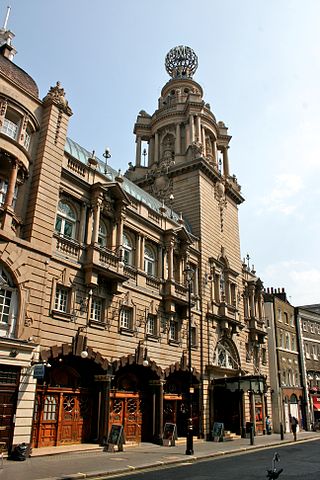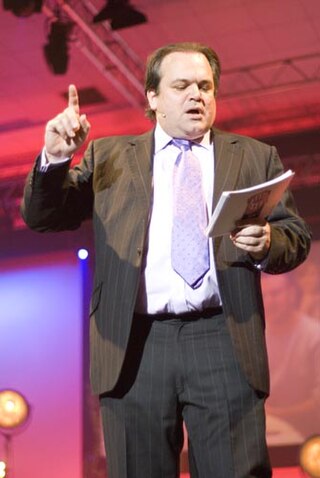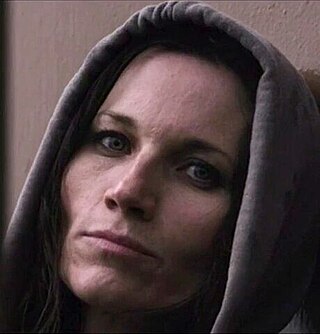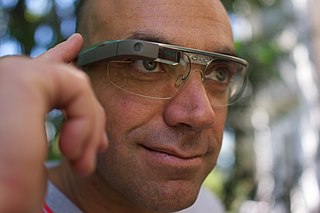Related Research Articles

Sir Ian Murray McKellen is an English actor. With a career spanning more than sixty years, he is noted for his roles on the screen and stage in genres ranging from Shakespearean dramas and modern theatre to popular fantasy and science fiction. He is regarded as a British cultural icon and was knighted by Queen Elizabeth II in 1991. He has received numerous accolades, including a Tony Award, six Olivier Awards, and a Golden Globe Award as well as nominations for two Academy Awards, five BAFTA Awards and five Emmy Awards.

Dame Judith Olivia Dench is an English actress. Widely considered one of Britain's greatest actresses, she is noted for her versatile work in various films and television programmes encompassing several genres, as well as for her numerous roles on the stage. Dench has garnered various accolades throughout a career spanning over seven decades, including an Academy Award, a Tony Award, two Golden Globe Awards, four British Academy Television Awards, six British Academy Film Awards and seven Olivier Awards.

Dame Joanna Lamond Lumley is a British actress, presenter, former model, author, television producer, and activist. She has won two BAFTA TV Awards for her role as Patsy Stone in the BBC sitcom Absolutely Fabulous (1992–2012), and was nominated for the 2011 Tony Award for Best Featured Actress in a Play for the Broadway revival of La Bête. In 2013, she received the Special Recognition Award at the National Television Awards, and in 2017 she was honoured with the BAFTA Fellowship award.

Simon Phillip Hugh Callow is an English actor. Known as a character actor on stage and screen, he has received numerous accolades including an Olivier Award and Screen Actors Guild Award as well as nominations for two BAFTA Awards. He was made a Commander of the Order of the British Empire (CBE) for his services to acting by Queen Elizabeth II in 1999.

The Royal Opera House (ROH) is a historic opera house and major performing arts venue in Covent Garden, central London. The large building is often referred to as simply Covent Garden, after a previous use of the site. It is the home of The Royal Opera, The Royal Ballet, and the Orchestra of the Royal Opera House. The first theatre on the site, the Theatre Royal (1732), served primarily as a playhouse for the first hundred years of its history. In 1734, the first ballet was presented. A year later, the first season of operas, by George Frideric Handel, began. Many of his operas and oratorios were specifically written for Covent Garden and had their premieres there.

The London Coliseum is a theatre in St Martin's Lane, Westminster, built as one of London's largest and most luxurious "family" variety theatres. Opened on 24 December 1904 as the London Coliseum Theatre of Varieties, it was designed by the architect Frank Matcham for the impresario Oswald Stoll. Their ambition was to build the largest and finest music hall, described as the "people's palace of entertainment" of its age.

Terrence Higgins Trust is a British charity that campaigns about and provides services relating to HIV and sexual health. In particular, the charity aims to end the transmission of HIV in the UK; to support and empower people living with HIV, to eradicate stigma and discrimination around HIV, and to promote good sexual health.

West End theatre is mainstream professional theatre staged in the large theatres in and near the West End of London. Along with New York City's Broadway theatre, West End theatre represents the highest level of commercial theatre in the English-speaking world. Seeing a West End show is a common tourist activity in London. Famous screen actors, British and international alike, frequently appear on the London stage.

Shaun Williamson is an English actor best known as Barry Evans in EastEnders and as a satirical version of himself in the BBC/HBO sitcom Extras, 'Barry off EastEnders'.

The Lowry is a theatre and gallery complex at Salford Quays, Salford, Greater Manchester, England. It is named after the early 20th-century painter L. S. Lowry, known for his paintings of industrial scenes in North West England. The complex opened on 28 April 2000 and was officially opened on 12 October 2000 by Queen Elizabeth II.

The King's Head Theatre, founded in 1970 by Dan Crawford, is an off-West End venue in London. It is the oldest operating pub theatre in the UK. In 2021, Mark Ravenhill became Artistic Director and the theatre focusses on producing LGBTQ+ work, work that is joyful, irreverent, colourful and queer.

The Theatre Royal in Bath, England, was built in 1805. A Grade II* listed building, it has been described by the Theatres Trust as "One of the most important surviving examples of Georgian theatre architecture". It has a capacity for an audience of around 900.

The Marlowe Theatre is a 1,200-seat theatre in Canterbury named after playwright Christopher Marlowe, who was born and attended school in the city. It was named a Stage Awards, 2022 UK Theatre of the Year.

Jason John Manford is an English comedian, presenter, actor and singer.

Wilton's Music Hall is a Grade II* listed building in Shadwell, built as a music hall and now run as a multi-arts performance space in Graces Alley, off Cable Street in the London Borough of Tower Hamlets. It is one of very few surviving music halls of the East End of London and retains many original features.

Rowan David Oakes is a British actor. He is best known for his roles in the series The Pillars of the Earth, The Borgias, The White Queen, Victoria, Vikings: Valhalla, and for his discursive Natural History podcast, Trees A Crowd.

Kate Fleetwood is an English actress. She was nominated for a Tony Award for her performance as Lady Macbeth in Macbeth, at Chichester Festival Theatre and the West End and Broadway and an Olivier Award nomination in 2012 for her performance as Julie in London Road at the National Theatre. Her film and television credits include Vanity Fair (2004), Harry Potter and the Deathly Hallows – Part 1 (2010), Macbeth (2010), Philomena (2013), London Road (2015), Harlots (2017-2019), and The Wheel of Time (2021).

Hedwig glasses or Hedwig beakers are a type of glass beaker originating in the Middle East or Norman Sicily and dating from the 10th-12th centuries AD. They are named after the Silesian princess Saint Hedwig (1174–1245), to whom three of them are traditionally said to have belonged. So far, a total of 14 complete glasses are known. The exact origin of the glasses is disputed, with Egypt, Iran and Syria all suggested as possible sources; if they are not of Islamic manufacture they are certainly influenced by Islamic glass. Probably made by Muslim craftsmen, some of the iconography is Christian, suggesting they may have been made for export or for Christian clients. The theory that they instead originate from Norman Sicily in the 11th century was first fully set out in a book in 2005 by Rosemarie Lierke, and has attracted some support from specialists.

Surtitles, also known as supertitles, Captitles, SurCaps, OpTrans, are translated or transcribed lyrics/dialogue projected above a stage or displayed on a screen, commonly used in opera, theatre or other musical performances. The word "surtitle" comes from the French language sur, meaning "over" or "on", and the English language word "title", formed in a similar way to the related and similarly-named subtitles. The word Surtitle is a trademark of the Canadian Opera Company.

Smartglasses or smart glasses are eye or head-worn wearable computers that offer useful capabilities to the user. Many smartglasses include displays that add information alongside or to what the wearer sees. Alternatively, smartglasses are sometimes defined as glasses that are able to change their optical properties, such as smart sunglasses that are programmed to change tint by electronic means. Alternatively, smartglasses are sometimes defined as glasses that include headphone functionality.
References
- 1 2 "The London Opera Glass Company Limited". Companies in the UK. Retrieved 8 May 2012.
- ↑ National Quiz Team (9 October 2014). The Only Quiz Book You Will Ever Need. Random House. pp. 177–. ISBN 978-1-4735-1764-6.
- ↑ "Two famous London theatres get Opera Glasses in time for new productions". Theatre Views Newsletter. Summer 2009. Retrieved 9 May 2012.
- ↑ "1.8 million views of Lion King". Theatre Views Newsletter. October 2011. Retrieved 9 May 2012.
- ↑ "Company Profiles: London Opera Glass Company" (PDF). Green Achiever Newsletter. March 2012. Retrieved 10 May 2012.
- ↑ "London Opera Glass Company donate money to The Theatres Trust". The Theatres Trust, UK. 2 May 2011. Retrieved 8 May 2012.
- ↑ "Opera glass company sets sights on our theatre". The Marlowe Theatre, UK. 10 January 2011. Retrieved 9 May 2012.
- ↑ "Donated Opera Glasses". The Wildlife Trust of South and West Wales. Retrieved 16 March 2018.